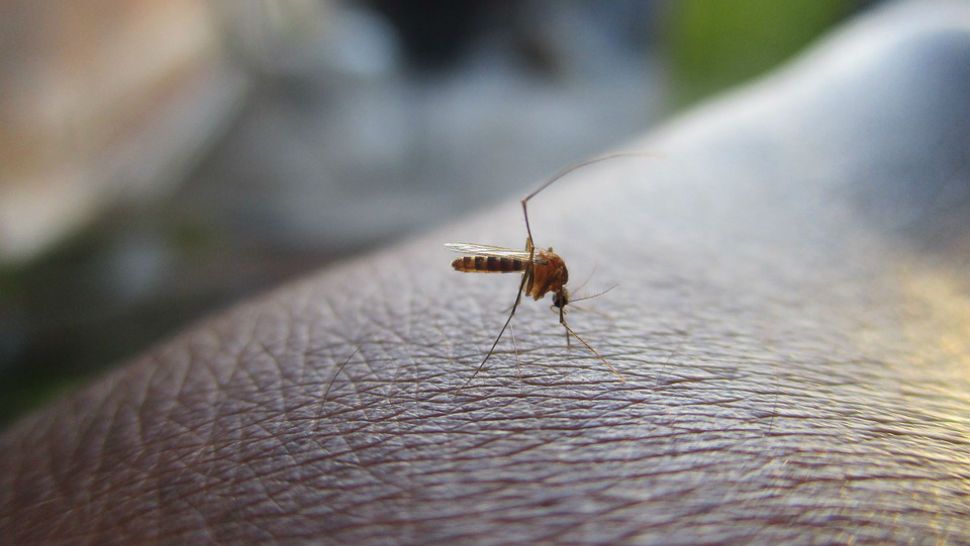NATIONWIDE — It’s that time of year again — the bugs are buzzing and some of them biting. In particular, mosquitos.
Do you ever get the feeling that you’re getting bit more than others? It’s not just a feeling. It’s science! And B.O.! Womp, womp.
RELATED | Top 5 creepiest bugs in Texas
Jason Pitts, assistant professor of biology at Baylor University, studies “host seeking" — how mosquitoes find their next meal. And he says odor is a major factor why mosquitoes bite some people more often.
1. THE WAY YOU SMELL
“Many insects find their way around the world through their sense of smell, even more than vision,” Pitts said. “Mosquitoes and other insects really are adept at finding places to lay their eggs or finding flowers on which to feed or finding people on which to blood feed just by the sense of smell.”
Female mosquitoes bite because they need blood for reproduction and have the ability to smell odor over long distances.

From the TED-Ed Lesson The loathsome, lethal mosquito - Rose Eveleth. Animation by Karrot Animation.
“Females are able to track upwind. They literally track,” Pitts said. “Once they get that stream of odor, they fly in and out of the stream of odor to orient themselves to try get to the host.”
Using outdoor fans to keep cool — or blow away mosquitoes — can actually help attract them, believe it or not.
“Fans are a double-edged sword. One thing, mosquitoes are not particularly strong flyers so that is why a fan might work to blow them away from you, but the drawback is that you are blowing your odor downwind. That is attractive to mosquitoes. At the same time you might be blowing mosquitoes away from you, you may actually be calling to mosquitoes from far away,” Pitts said.
2. YOUR BODY HEAT
It’s not just your sweat drawing them in, either. Heat is also is very attractive for female mosquitoes, Pitts says.
“Mosquitoes are exquisitely sensitive to differences in temperature on surfaces. When it comes to heat or carbon dioxide, both can be beacons for mosquitoes as well,” Pitts said.
3. HOW YOU TASTE
Researchers have discovered mosquitoes use the sense of taste to decide whether to feed as well.
“Once a mosquito lands on the skin, they taste the skin to decide whether this is a good host or not,” Pitts said. “They can actually taste DEET, which is long-range repellant. They can smell it and avoid it. When they taste it, they will also fly away. Therefore, we know that taste is also important in some ways. Taste is the final choice before blood feeding.”
So whether you're a prime cut or a tasteless turnoff to these flying pests, you should do your part to minimize their presence for those who are and to minimize spread of mosquito-borne illnesses including Zika, malaria, West Nile virus, heartworm in dogs and cats and more.
- Reduce mosquitoes’ breeding grounds
The most important thing that anyone can do is to reduce breeding sources for mosquitoes by eliminating stagnant water. If you have standing water in any kind of container in your yard, get in the habit of emptying those containers, including children’s swimming pools, which should be emptied at least once a week. Once a mosquito hatches, it takes a mosquito larva about a week to completely mature and become an adult. Emptying stagnant water can have a huge impact on lowering mosquito populations.
- Use DEET topical repellants
Bracelets, bands and other wearable devices that emit repellant compounds, such as citronella, lemongrass oil or eucalyptus, probably do reduce some mosquito bites. However, Pitts said these devices don’t provide absolute protection against bites. Topical repellants, he said, are still the best. They cover your skin and will not only have a volatile repellant effect, but if a mosquito lands on a person’s skin, it will not bite.

From the TED-Ed Lesson The loathsome, lethal mosquito - Rose Eveleth. Animation by Karrot Animation.
- Avoid peak biting times
Mosquitoes typically bite at dusk and at dawn and are most active when the sun is rising or setting.
